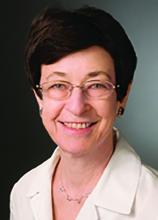“You are the best doctor I ever had.” These were the words of my patient at our final session. I kissed Rosa on the cheek and embraced her as she left my office. And I said, “It is important to show the love.”
“This may be the last time I come to your office,” she said. When Rosa came through the door at the beginning of the session, I was taken aback. She had lost weight and was using a walker; her face was drawn and sallow. I knew she had a recent diagnosis of liver cancer and had been hospitalized. She told me: “I have 3 months to live.” The cancer was inoperable.
She sat in a chair close to me, and we reminisced about 20 years as doctor and patient. She also talked about the stents in her liver; when they blocked, the pain resulted in a revisit to the emergency department. She had help from home health aides for several hours a day. Rosa’s sister arrived from Puerto Rico to be here “for as long as it takes.”
When she started therapy, Rosa was a single mother who lived in the projects with her adolescent son, Wesley. Her husband had died of AIDS. Unemployed and depressed, she told me that an uncle had sexually abused her when she was a child. Over the years, she looked to me for support: When her son, Wesley, got shot in the leg on a basketball court; when Wesley married a woman who shunned her; when her nephew who stayed with her got arrested for selling drugs and she lost her apartment as a result. Rosa remained in New York, displaced and struggling to find a reasonable home. After Wesley married, he moved with his family to rural Pennsylvania.
Whenever Rosa called to set up a therapy session, we talked about her problems. I prescribed medication for her, and I directed her to proper medical care. Often, I encouraged her to improve her diet, lose weight, and exercise – but to no avail. Her health deteriorated. She had cardiac surgery, heart failure, diabetes, hypertension, and chronic obesity. All these illnesses became her concern. She attended clinics at the hospital.
Now she told me that she would miss her son and would not see her two young grandchildren grow up. Rosa took Wesley to a funeral home to select a coffin and a headstone. It was tough for both of them, but she wanted to spare Wesley the trouble of doing it alone. She reflected, “It was like hitting a concrete wall” when she discovered her terminal diagnosis.
Rosa is facing pain, saying goodbye, and death. During her meeting, her ordeal made me cry, but I tried to contain it. I have been her doctor for so long, not a member of her family, not a friend. Yet I love her.
“Just to be is a blessing. Just to live is holy.”
– Abraham Joshua Heschel
Dr. Cohen is in private practice and is a clinical assistant professor of psychiatry at Weill Cornell Medical Center of New York-Presbyterian Hospital, and psychiatric consultant at the Hospital for Special Surgery, also in New York. She made changes to the patient’s story to protect confidentiality.

